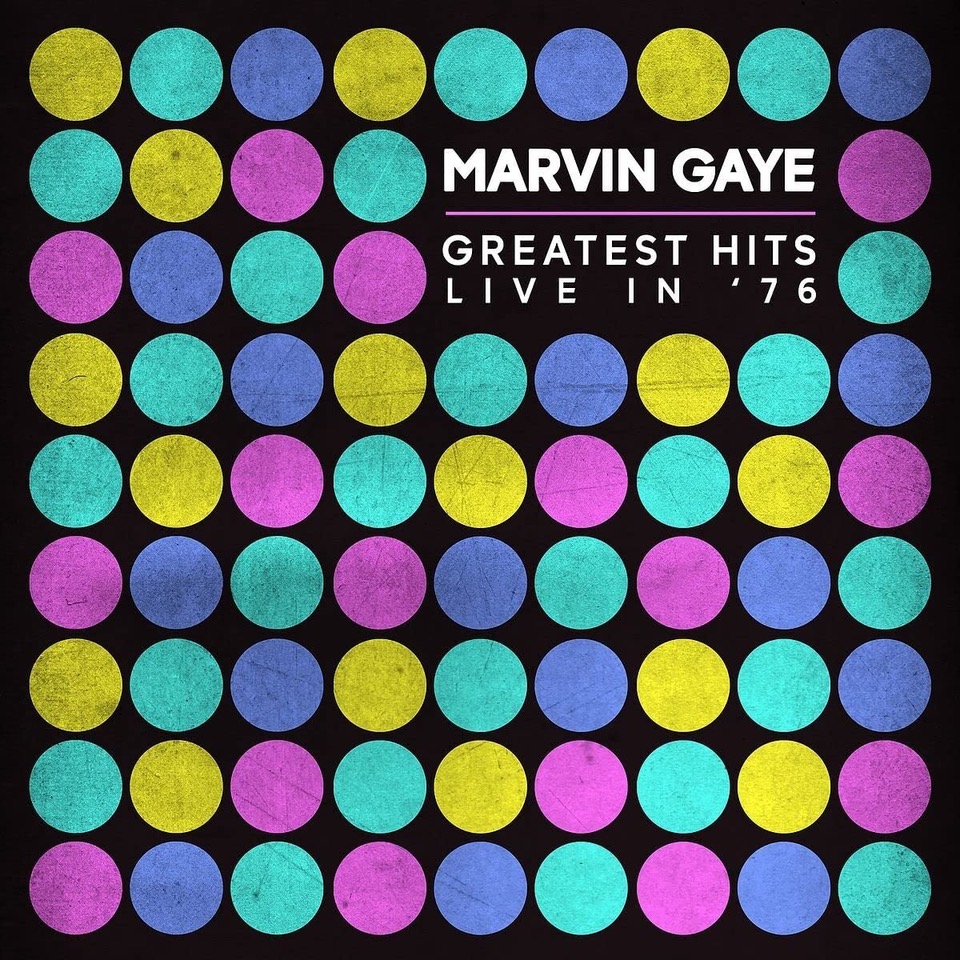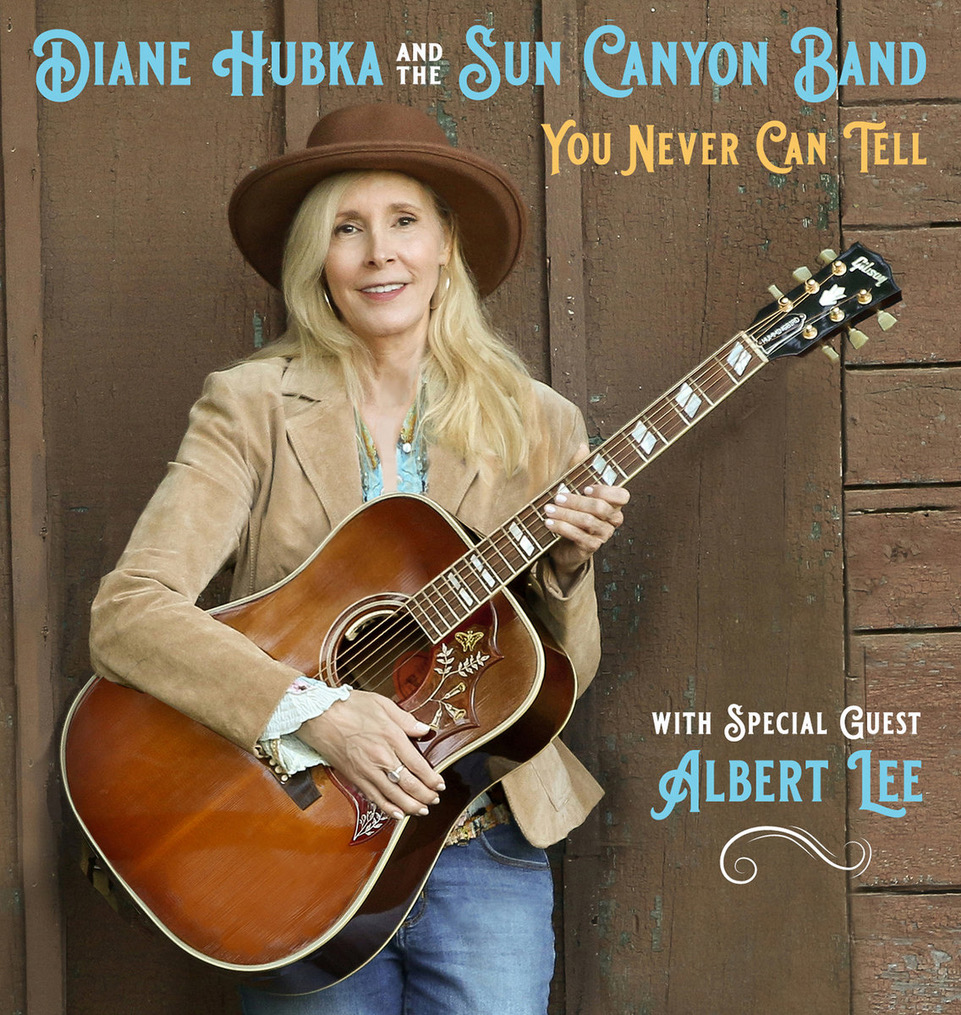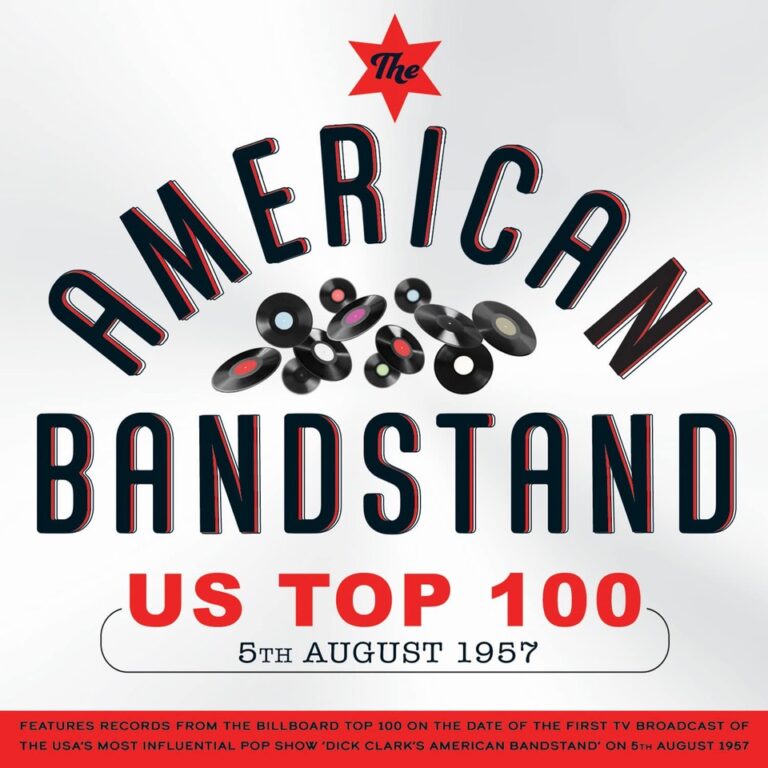Most multi-artist anthologies embrace some sort of cohesive musical theme, such as a focus on a particular genre or the work of a certain performer or composer. That’s not the case with American Bandstand US Top 100, 5th August 1957. This four-CD set simply collects the singles that appeared on Billboard’s pop chart in a single week in 1957 – a week that happens to be the one when Dick Clark’s influential American Bandstand TV show began broadcasting nationally.
Any anthology that’s devoted to the contents of one week’s Billboard chart is bound to be eclectic but it’s difficult to imagine more varied pop charts than the ones from around 1957. The music was undergoing a revolution as the styles that dominated the early part of the decade were being supplanted by rock and roll. Teenagers were going wild for the latter while most adults were still deriding it and listening to sanitized and saccharine pop ditties. The divide was as wide as today’s split between Democrats and Republicans.
The chart for the week beginning Monday, August 5, 1957, fully reflects this chasm. On the one hand, it includes such old-school balladeers as Pat Boone (who in previous years scored hits with anemic covers of songs by Fats Domino and Little Richard), as well as Bing Crosby, Debbie Reynolds, Tony Bennett, Andy Williams, Perry Como, and even elevator-music purveyor Montovani. Sharing the list with them, however, are rockers like Elvis Presley, Jerry Lee Lewis, and Ricky Nelson.
Black artists, who a few years earlier would have been relegated to so-called “race record” charts, are here as well, including Little Richard and Chuck Berry, and such R&B and doo-wop-influenced acts as Fats Domino, Frankie Lymon & the Teenagers, Clyde McPhatter, the Coasters, Billy Ward & His Dominoes, the Platters, and Ivory Joe Hunter. In addition, there’s jazz from Ralph Marterie and Jimmy Dorsey as well as a few country-rooted acts, among them Jim Reeves and Marty Robbins.
There’s also one novelty number: Buchanan & Goodman’s “Flying Saucer,” a record that uses snippets from other popular hits to tell a puerile story about visitors from outer space. It was a bestseller in 1957 but is largely forgotten today. It’s not the only obscurity here, of course: many of the other songs on the lower part of the list never broke into the Top 40 and are now virtually never played or discussed.
As was often the case during the fifties, a lot of artists were vying with themselves for high positions on the August 5, 1957, chart: the Ames Brothers, the Coasters, Chuck Berry, Johnny Mathis, Nat King Cole, Rick Nelson, Pat Boone, and the Platters all appear twice on the list, while the Del-Vikings, Elvis Presley, Fats Domino, Harry Belafonte, and Little Richard each show up three times. There were song duplications as well, with three competing versions of the pop tunes “Around the World” and “White Silver Sands” and two renditions each of “Bye Bye Love,” Dark Moon,” “Four Walls,” “I’m Walkin’,” and “Tammy.”
Hearing all these numbers together in one place is a fascinating albeit sometimes jarring experience that reminds you of just how much and how fast music was changing (not to mention how much it has evolved since 1957). One minute, acts like the Coasters and Little Richard are rocking the joint with “Searchin’” and the incendiary “Lucille”; then suddenly, Pat Boone is crooning “Love Letters in the Sand,” or Patti Page is singing “Old Cape Cod” in a version that harkens back to 1940s recordings from the Andrews Sisters. Many of the non-rock songs are in fact quite good, but it’s worth noting that it’s the rockers that have more often endured and, in many cases, are now regarded as classics.
One final note: This album contains 99 tracks, not the 100 suggested by its title, because copyright issues prevented the inclusion of “Think” by the great R&B group the “5” Royales. But you can find that song on Monkey Hips & Rice: The “5” Royales Anthology, which is a collection that no fan of this era should be without.
Also Noteworthy

Marvin Gaye, Greatest Hits Live in ’76. This recording, which was originally released as a video in 2000, was made in Amsterdam, Holland, during Marvin Gaye’s first European tour, the same concert series that produced 1977’s Live at the London Palladium.
Like that release, the one from Amsterdam features the late Motown star delivering many of his hits, though the setlists differ somewhat. Both concerts also find Gaye joined by a singer named Florence Lyles on a few numbers that he originally recorded as duets with Kim Weston or Tammi Terrell.
The Amsterdam album includes stellar 1960s chart successes like “Ain’t No Mountain High Enough,” “How Sweet It Is to Be Loved by You,” “I Heard It Through the Grapevine,” “It Takes Two,” and “Hitchhike” as well as several of Gaye’s more political early-1970s tunes, such as “Save the Children,” “What’s Going On,” and “Mercy Mercy Me (The Ecology).”
Though Gaye’s satiny voice is in fine form throughout, the news about the new CD is not all good. For one thing, the audio quality is uneven; at times, the record sounds like what you might hear from the very back of a concert hall. Also, Gaye appears to rush through many of his hits even faster than he did on Palladium, where he served up 14 songs in three medleys that together clocked in at about 31 minutes. In the Amsterdam show, only about half of the 23 tracks are full-length performances, and many of the rest are mere snippets, with nine of them not even breaking the one-minute mark and three more only slightly longer than that.

Diane Hubka & the Sun Canyon Band, You Never Can Tell. Diane Hubka built her career as a jazz singer but on this album, she applies her unaffected vocals to folk music. Backup comes from a talented band of multi-instrumentalists as well as guest Albert Lee, the veteran British musician known for his fingerstyle guitar work.
Hubka captures the joy in Guy Clark’s “Baton Rouge” and will likely have you singing along to her version of Bob Dylan’s classic “You Ain’t Goin’ Nowhere.” The traditional “Shady Grove” and Chuck Berry title cut are endearing as well, as is a brass-spiced cover of Randy Newman’s “Louisiana 1927.” Also likable are “Albuquerque,” a Western swing–influenced acoustic guitar showcase; and “Dancing with My Shadow” and “Belly of the Whale,” both of which were written by the band’s Rick Mayock, who chimes in on vocals.
Jeff Burger’s website, byjeffburger.com, contains five decades’ worth of music reviews, interviews, and commentary. His books include Dylan on Dylan: Interviews and Encounters, Lennon on Lennon: Conversations with John Lennon, Leonard Cohen on Leonard Cohen: Interviews and Encounters, and Springsteen on Springsteen: Interviews, Speeches, and Encounters.



